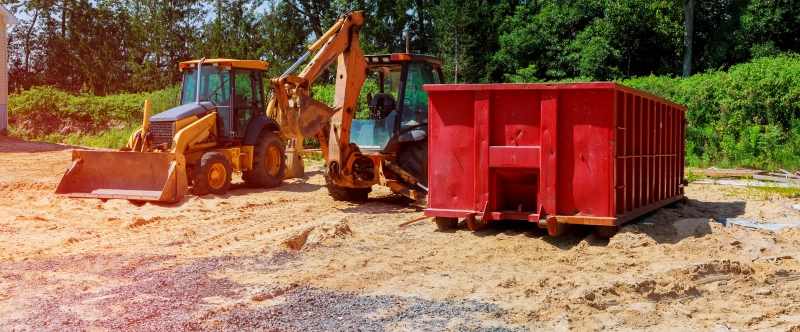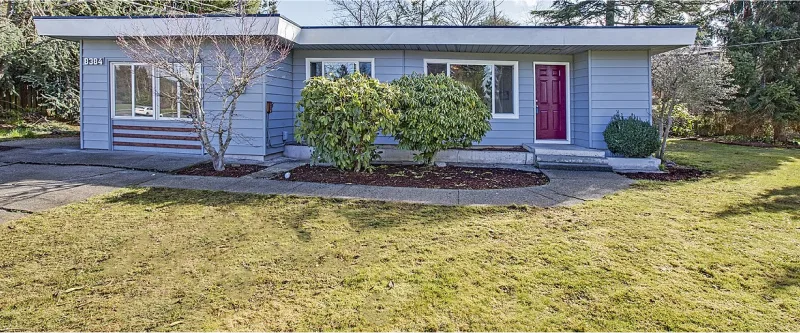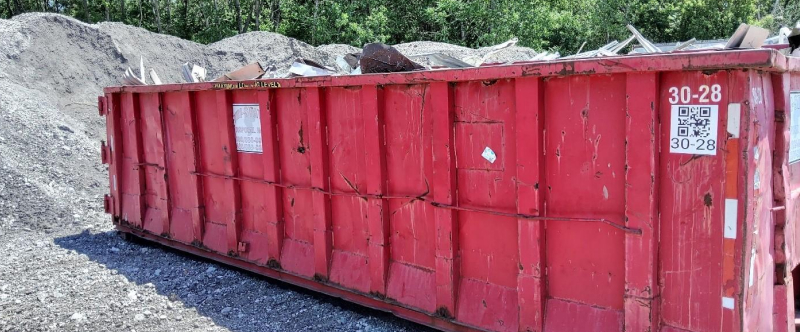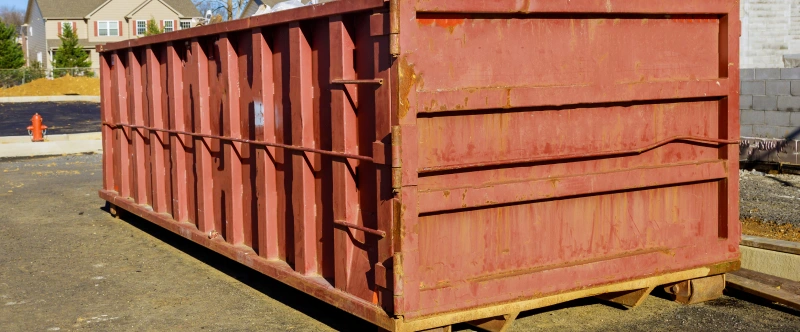Renting a dumpster in Long Island is straightforward—until you realize you may need a permit.
Without one, you could face fines, delays, or even legal trouble. Whether you’re a homeowner tackling a renovation, a contractor managing a commercial site, or a business with ongoing trash removal services, understanding local permit rules is critical.
“One of the trickiest permit situations I’ve come across was in the Village of Brightwaters,” said Bryan Goetz, owner of S&A Container Service. “Even though it falls under the Town of Islip, the village has its own unique rules — for example, only the homeowner can apply for and maintain a valid dumpster permit, not the dumpster company. It’s a detail that can easily get overlooked if you’re not familiar with the area.”
Goetz also added that, “Generally, permitting across Long Island is pretty straightforward — towns like Brookhaven, Islip, Riverhead, and Southampton all require them. But it’s those small incorporated villages that can throw a curveball.”
In this guide, we’ll break down permit costs, insurance requirements, and compliance tips for areas in Nassau and Suffolk counties.
It’s important to note that the rules for each area could change at any time, so always double-check with local regulators.
Why Permits Matter: Legal Consequences of Skipping Permits
Placing a dumpster without a permit might seem like a harmless shortcut, but it’s a costly gamble. Towns like Hempstead in Nassau County or Babylon in Suffolk County may impose fines of $20–$1,000+ for unpermitted dumpsters. Worse, if your dumpster blocks traffic or causes an accident, you could be held liable for injuries or property damage.
In addition to fines and legal trouble, not following permit procedures can lead to significant project delays. If a town spots your unpermitted dumpster, they could issue a violation notice and require immediate removal. This could push back your project timeline, costing both time and money.
So, it’s better to follow the rules to avoid these potential setbacks.
Who Needs a Permit When Renting a Dumpster in Long Island?
Homeowners
Homeowners generally need a permit if their dumpster is placed on public property, such as a street, sidewalk, or curb. For small dumpsters, like those used for home cleanouts or minor renovations, this typically applies if the dumpster will block any public space.
A great example of this is if you’re a homeowner in Huntington looking to rent a dumpster. It can be placed on the street in front of your home, but only with a valid permit. This permit must be obtained through the Town of Huntington Highway Department by a dumpster rental company that is licensed with the Town.
Once the permit is issued for your specific address, it is valid for five consecutive days—including Sundays—before it must be renewed. Placing any size roll-off dumpster on your driveway or elsewhere on private property will typically eliminate the need for a permit.
In most cases, it’s the responsibility of the dumpster rental company to be properly permitted to operate within a specific township.
As long as the container is placed on private property, homeowners and property owners can usually avoid the added step of obtaining a municipal permit. However, in some smaller villages, the homeowner may be required to obtain the permit directly from the Village rather than through the dumpster rental company—an example of this is the Village of Brightwaters.
Contractors
For contractors, navigating permits is a bit more complicated. You may need to manage multiple permits for a single project, especially if you’re working on a large-scale construction or demolition project. Some contractors handle all the permit applications for their clients, but others might leave that responsibility to homeowners. Either way, having a clear understanding of the town’s specific rules is essential for avoiding unnecessary delays.
Commercial Projects
Commercial dumpster users face stricter rules, especially when using large dumpsters and compactors (20+ yards). Larger dumpsters often require more formalized permitting due to the volume of waste they handle and the larger space they occupy. Businesses may also have to meet additional local regulations, such as zoning laws or environmental requirements.
An example of this is the Commercial Waste Service Permitting process in Smithtown. In Smithtown, commercial waste disposal is handled differently than in many other Long Island townships. One key distinction is that commercial customers are required to pay the Town of Smithtown directly for the disposal of their waste. This cost is based on the weight of the material and is charged at the town’s designated disposal facility.
Unlike in other towns where the dumpster rental company (also known as the carter) may include both hauling and disposal fees in a single service invoice, in Smithtown, the carter only charges for the hauling and/or rental of the dumpster. All collected waste must be delivered to the Town of Smithtown’s designated disposal site, and the commercial customer is billed separately by the town for the weight of the dumped material.
It’s important to note that these Smithtown tonnage fees apply strictly to commercial trash—such as general business waste—and do not apply to construction & demolition debris or junk removal materials. These types of debris are not subject to town-imposed fees and would instead be invoiced directly by the dumpster rental company.
It’s crucial to communicate clearly with your dumpster provider about the type of material you plan to load into the dumpster. This ensures the proper permitting and billing process is followed and helps avoid any confusion or additional costs.
“Another interesting nuance is in the Town of Babylon, where commercial properties are required to use a designated trash service provider within the town’s waste district for regular trash service,” says Goetz. “But that doesn’t apply to temporary roll-off dumpsters, which is good to know. It all taught me to always double-check the local requirements, especially when dealing with incorporated areas.”
Long Island Dumpster Permit Resources:
The following websites may be able to steer you in the right direction regarding specific permit guidelines in your areas.
Permit Costs by Long Island County & Township
Nassau County
In Nassau County, a permit is typically required only for the dumpster rental company, which must be registered or permitted with the specific township. Most of the time, individual homeowners or contractors don’t need to obtain a separate permit unless the dumpster is being placed on public property.
You’ll often see a sticker on the front of the dumpster displaying the rental company’s permit number. For larger projects like demolitions or major renovations, additional requirements—such as insurance or a site plan review—may still apply, depending on the township
Suffolk County
Towns within Suffolk County, like Brookhaven, Islip, and Babylon, have specific rules governing dumpster placement and the associated fees. These towns typically require only the dumpster rental company to submit a permit application. Additionally, some towns may charge a permit fee based on the dumpster size, duration of the rental, and whether it’s used for residential or commercial purposes.
Be sure to check with your local town office for the most accurate and up-to-date permit requirements.
Town of Hempstead
In the Town of Hempstead, permits are likely required for roll-off dumpsters that are placed on public property, such as streets or sidewalks.
For large commercial projects, additional permits for waste collection businesses may be necessary, as Hempstead has specific guidelines for waste management companies.
Town of Huntington
Huntington is unique in that its permit system primarily focuses on waste haulers. If you’re operating a waste removal business or managing dumpsters for a commercial project, you may need a solid waste collection license. However, individual dumpster permits may not be necessary unless your project involves placing dumpsters on public property.
How to Apply for a Dumpster Rental Permit – Step-by-Step Guide
Contact a Local Regulatory Department, Submit Documentation: You’ll likely need to provide proof of insurance and a site plan showing where your dumpster will be placed. This ensures that local authorities are aware of potential risks and can approve the location of the dumpster.
Pay Fees: Some towns accept online payments, while others may require in-person submissions. Be sure to ask for the exact process and ensure all fees are paid before placing the dumpster.
Display Permit: Once your permit is approved, make sure it’s clearly displayed on or near the dumpster. Some towns may also require that it be available for inspection at any time during the rental period.
Cost-Saving Tips
Avoid Public Property Placements: Placing your dumpster on private property (such as a driveway or yard) can help you avoid needing a permit altogether. For example, a homeowner in Huntington saved $45.00 every five days by placing a small dumpster in their driveway and parked their car on the street.
Negotiate with Rental Companies: Many dumpster rental companies are willing to assist with permit applications or include them in the rental package. It’s always worth asking, especially if you are unsure about the process or the cost.
Hypothetical Case Studies in Fees
1. Residential Renovation in Nassau County
Project: Kitchen remodel in The Village of Brightwaters.
Dumpster: 15-yard residential dumpster.
Costs:
- Rental Permit: $75/five days
- Town Finet: $100/ day.
Lesson: Avoid expensive fines by ensuring you have the correct valild permit in place the entire time the dumpster is on site and used.
2. Commercial Demolition in Hempstead
Project: Large House Renovation – Huntington
Placement: Dumpsters had to be placed in the street in front of the house due to limited space
Dumpster Rental: Five 30-yard dumpsters
Permit Cost: $45 per 5-day period
Fines by Town: Zero. The permit was properly applied for and approved by the town.
Conclusion
Dumpster permit fees in Long Island vary widely depending on the town and the scale of your project. Whether you’re a homeowner doing a small cleanup or a contractor working on a commercial site, understanding and complying with local permit regulations is crucial to avoid fines, delays, and other costly consequences.
Always check with local building, Waste Management, and Highway departments, and if you’re unsure, consider placing your dumpster on private property. When in doubt, ask your container provider if they can assist with the process. By following these steps, you’ll ensure a smoother project and keep dumpster rental costs under control.



